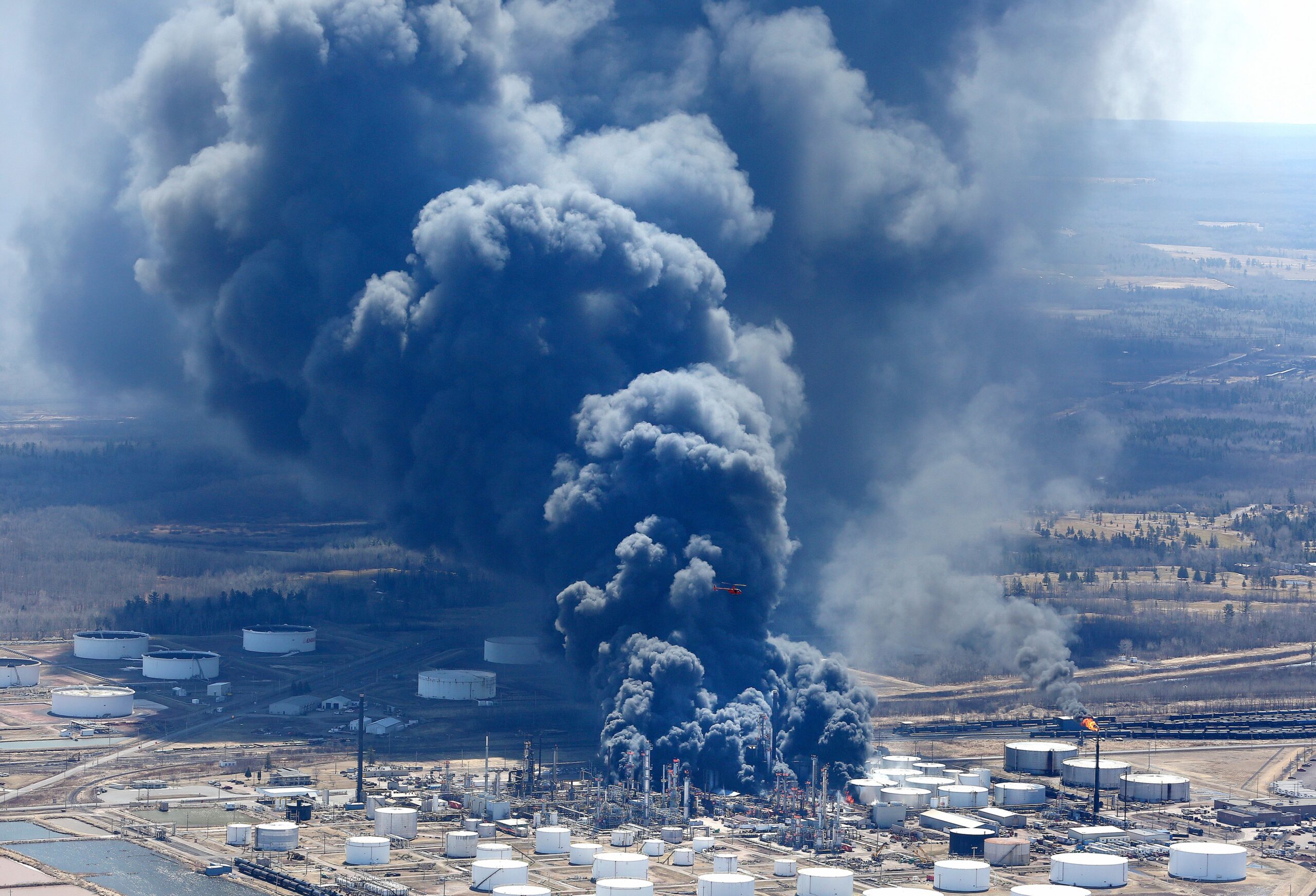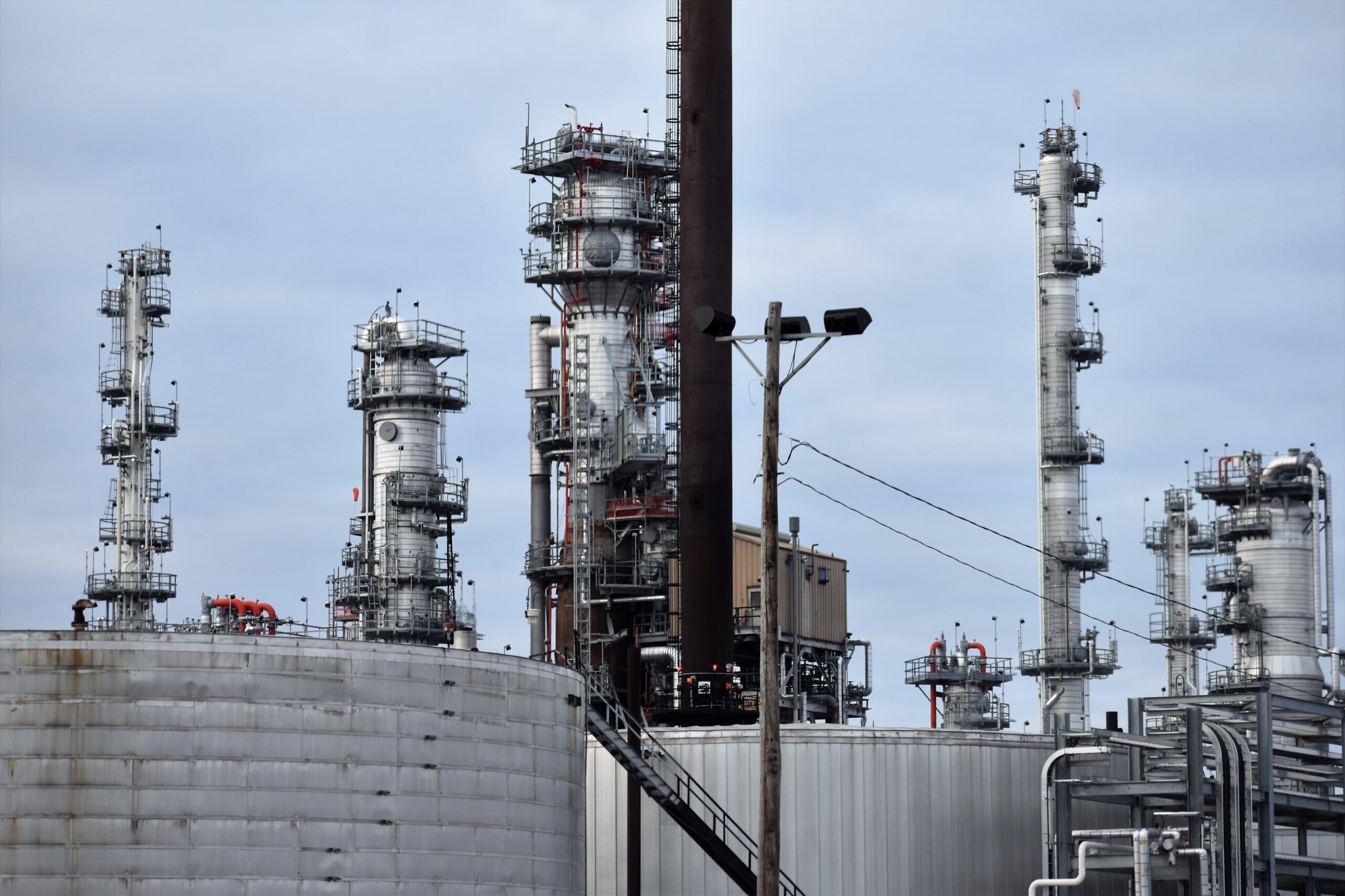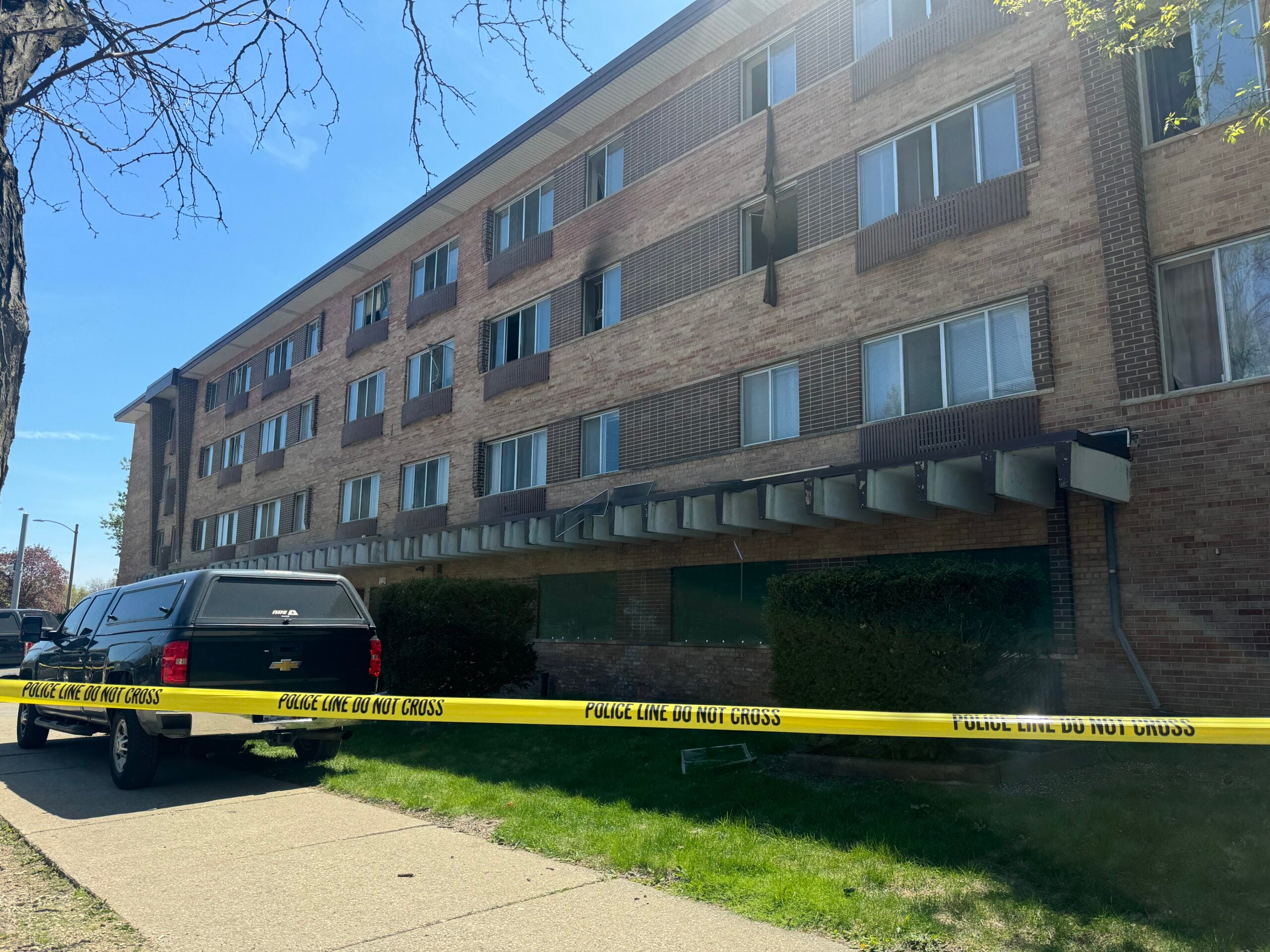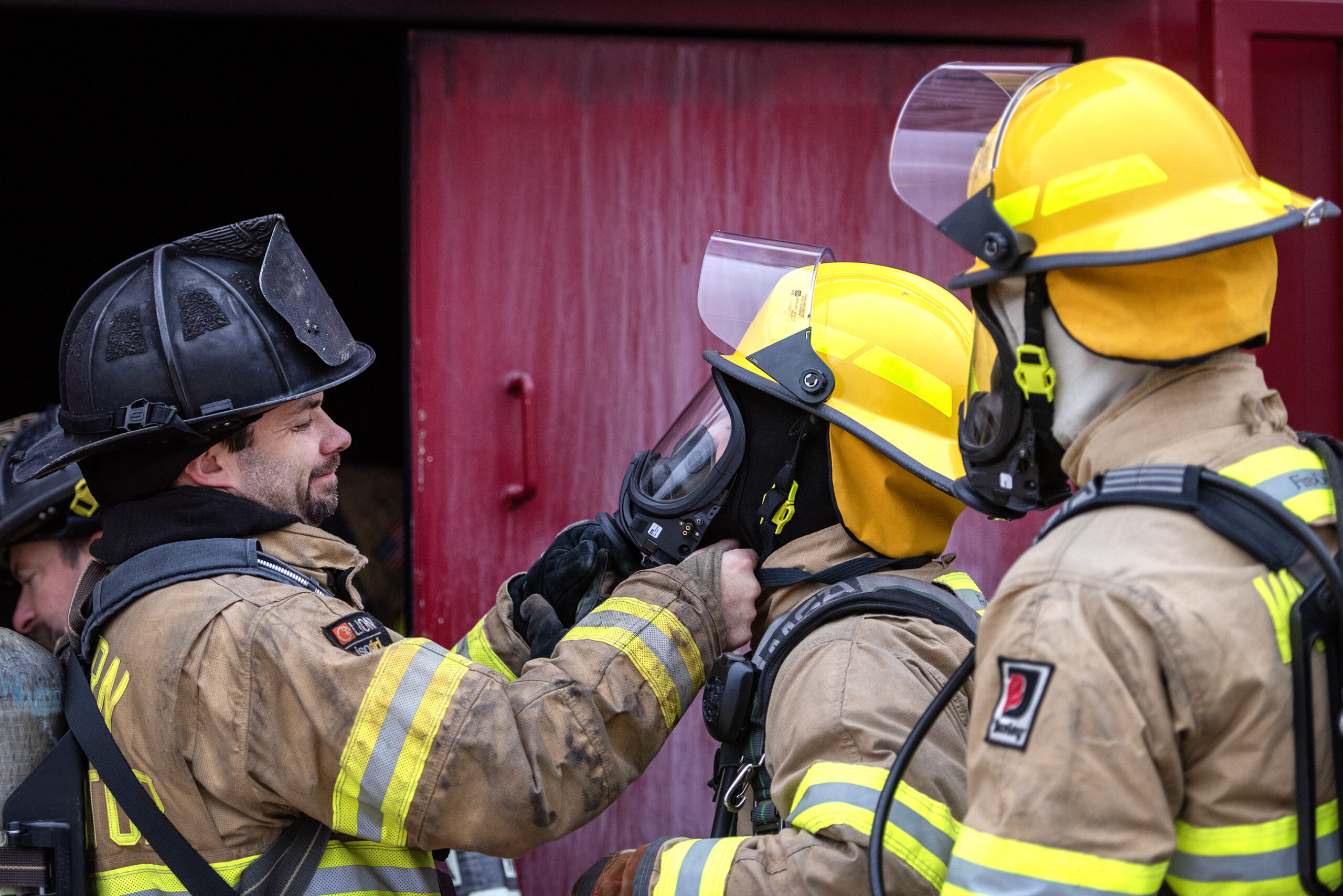Three years ago, an explosion rocked Wisconsin’s only oil refinery in Superior, injuring three dozen people and causing a temporary evacuation of city residents. But investigators with the U.S. Chemical Safety and Hazard Investigation Board have yet to release a final report on their investigation into the blast.
The Duluth News Tribune first reported that former employees and government auditors found that the agency has faced a shortage of staffing and unfilled board positions that have contributed to a backlog of investigations.
The Chemical Safety Board’s website currently shows 20 active investigations. They include reviews of the April 2018 explosion at the Husky refinery in Superior and the May 2017 explosion at the Didion Milling Co., in Cambria. The two events are among the four oldest incidents currently under investigation.
News with a little more humanity
WPR’s “Wisconsin Today” newsletter keeps you connected to the state you love without feeling overwhelmed. No paywall. No agenda. No corporate filter.
Superior Mayor Jim Paine said the delay in the final report on the explosion is “disappointing.”
“The best opportunity for safety improvements is during reconstruction — redesign,” said Paine. “If this report comes out with a significant recommendation about a major change in operations at the refinery, that’s going to be much harder to implement after reconstruction is done.”
Husky is in the middle of a $750 million rebuild of the refinery, which has experienced delays during the coronavirus pandemic.
The Chemical Safety Board is tasked with identifying the cause of chemical incidents. Unlike other federal agencies, the board doesn’t issue fines or criminal penalties. The board’s role is to make recommendations to prevent other chemical incidents from occurring.
A July 2020 audit from the U.S. Environmental Protection Agency’s Office of Inspector General found that the mission of the board was “impaired” as terms expired or board members stepped down. The board is made up of five members, including a chairperson, that are appointed by the president and confirmed by the U.S. Senate. As of last July, the board had only a single chairperson.
The report noted that board members “play a significant role in advocating the adoption of the Agency’s recommendations by industry, labor, government, and others.”
Former President Donald Trump proposed eliminating the agency more than once during his term. The Office of Inspector General report found that the board couldn’t resolve the unfilled positions until the president nominates board members for Senate confirmation. Since then, congressional lawmakers, as well as labor and industry groups, have urged President Joe Biden’s administration to fill the vacancies.
The audit also highlighted a shortage of investigators although the Chemical Safety Board did hire six investigators last year. The agency is also taking steps to fill four more positions with another round of hiring to follow.
The board issued the findings of its last completed investigation in December 2019, but the agency has opened nine new investigations since that time.
Paine noted the board has issued its preliminary findings on the Husky refinery explosion. In August 2018, the agency announced that a faulty valve in the refinery’s fluid catalytic cracking unit likely allowed oxygen and hydrocarbons to mix, causing the explosion. At the time, the board planned to release its final report within two years of the incident. Last fall, the agency hoped to release its findings this spring, but both timelines have passed.
“I believe that the reconstruction is going forward responsibly with the information that (Husky officials) have, and I think the information that they have is good information,” said Paine. “But, what’s happening here now is the (Chemical Safety Board) has probably missed the opportunity to play a meaningful role in the reconstruction for the Superior refinery.”
Husky, which has since been acquired by Cenovus Energy, plans to add a number of safety enhancements following the explosion. Reg Curren, a Cenovus spokesperson, said the company is committed to safe and reliable operations when the refinery restarts operations in 2023.
“Our plans for the rebuild embed safety enhancements, such as additional leak detection technology and fire suppression and containment measures,” said Curren in a statement.
The company is also adding a rapid acid transfer system that would transport the chemical hydrogen fluoride from one tank to another in the event of a release. A tank that held hydrofluoric acid prompted the evacuation of city residents because the highly toxic chemical can damage lung tissue if released or cause severe burns on contact.
Paine was among local leaders, including Duluth Mayor Emily Larson, who called on Husky Energy to transition away from the use of hydrogen fluoride in its operations. Debris from the explosion came within 150 feet of the acid unit, puncturing a nearby asphalt tank.
Two years ago, Husky announced that it would maintain its use of hydrogen fluoride, saying that the refinery would be “nonviable” without it.
Kay McKenzie lives about a mile from the refinery in Superior. She’d like to lobby the federal government to increase staffing for the agency. She fears the day when the refinery resumes operations.
“I think we’ve been sacrificed,” said McKenzie. “The people here have been sacrificed for the petroleum industry.”
She said she thinks community members and city officials have prioritized the need for jobs over public health.
Supporters of the rebuild project have noted that the refinery employs roughly 200 workers year-round during normal operations with a payroll of more than $27 million. Husky has said in the past that it anticipates spending more than $26 million each year with contractors and vendors. Representatives of the building and construction trades in the area have expressed confidence in the company’s commitment to safety.
Hillary Cohen, communications manager for the Chemical Safety Board, didn’t respond to a request for comment on Tuesday.
In January, Cohen said in an email, “We are diligently working on the investigation of the Husky Energy Refinery incident, and look forward to finalizing the report and releasing any potential safety recommendations that would improve the safety of workers, those in their communities, and the environment.”
Wisconsin Public Radio, © Copyright 2025, Board of Regents of the University of Wisconsin System and Wisconsin Educational Communications Board.






